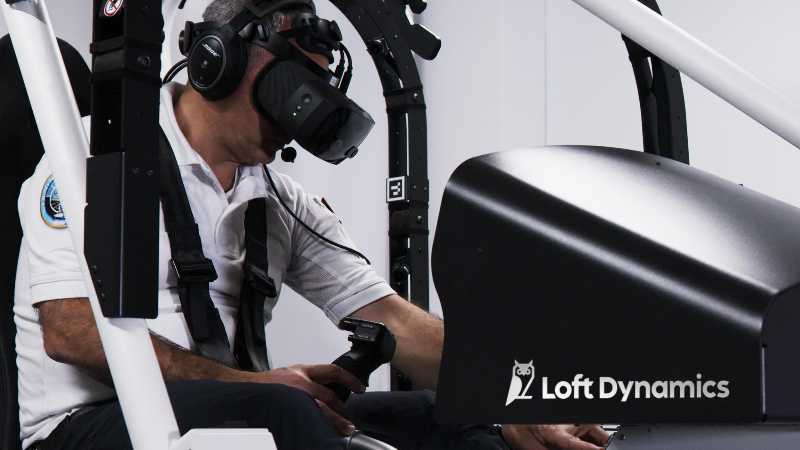
Swiss VR simulation startup Loft Dynamics — formerly known as VRM Switzerland — has raised $20 million in funding to solve the global pilot shortage.
During the COVID-19 pandemic, many pilots could not fly due to international travel restrictions. Some pilots then decided to retire early or change careers, worsening the situation with demand exceeding supply.
Founded in 2016, the startup develops simulators for commonly used helicopters, like the Airbus H125. Its programs allow pilots-in-training to engage in realistic flight exercises, including night-time flying and system failures.
Loft’s simulators involve high-resolution imagery, a full-scale replica cockpit and a dynamic motion platform to provide more training opportunities for aspiring pilots to hone their skills. Its VR tech also suppresses training costs as it minimizes the need for an actual helicopter to train. Furthermore, its full-motion simulators are significantly smaller than the ones currently in use worldwide, making installation much simpler.
The European Union Aviation Safety Agency (EASA) has authorized the Airbus H125 and Robinson R22 simulators. As of May 2022, pilots can obtain credits for time spent in any of those simulators, which speeds up their training.
Several U.S. venture capitalists participated in this funding round, including Craft Ventures and Sky Dayton. Loft Dynamics plans to use the funds to expand outside of Europe, starting with the U.S. market. The company also aims to develop more simulators for other aircraft models.
We are ready to expand Loft Dynamics to become a global company
Fabi Riesen, CEO
“After many years in development, we are ready to expand Loft Dynamics to become a global company and bring our technology and training solutions to the world,” said co-founder and CEO Fabi Riesen.
VR technologies are currently in high demand, thanks to their practicality in helping to improve training programs. VRAI, an Irish-based startup, is currently developing similar technology for the offshore wind industry. Meanwhile, the British-based FundamentalVR recently raised $20 million to train aspiring surgeons via VR.
